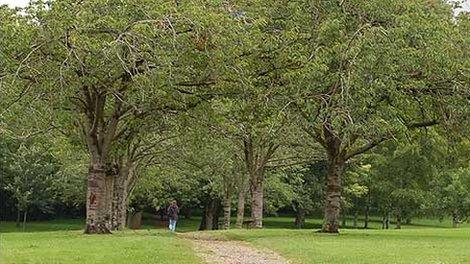Bath remembrance service marks 80 years since Blitz
- Published
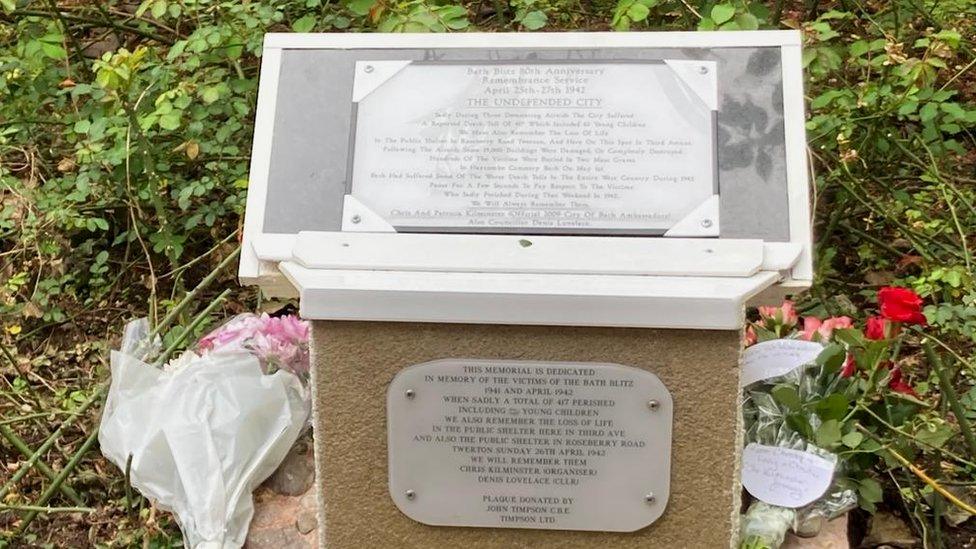
To mark the anniversary, an old war memorial was redesigned to bring it "up to the 21st Century"
A new memorial stone has been unveiled in Bath to mark 80 years since the worst air raids in the city.
A remembrance service was held for the 417 people and young children who died in the raids.
Some 1,000 people were injured and thousands of buildings were also hit.
Bath City ambassador Chris Kilminster organised the service, which took place at Shaftesbury Road Gardens earlier. He said: "We paid our respects to all the victims who perished."
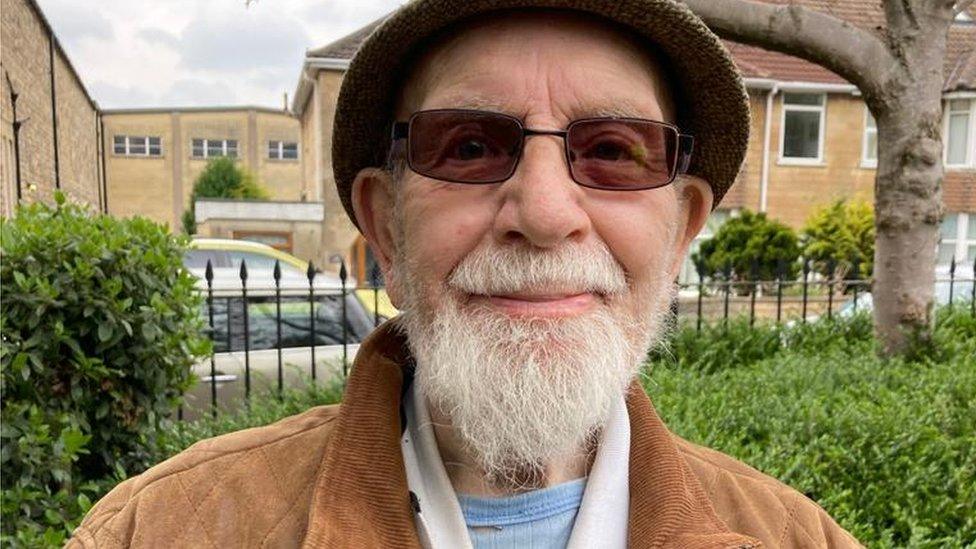
Terry Gay remembers the bombing that killed so many in Bath
The service was attended by 88-year-old Terry Gay who survived the bombing.
"We were lucky to be alive," he said.
"We had moved away from the first part of the raid, to make sure my auntie was ok. When we came back the bomb had dropped, killing a lot of people.
"And they machine gunned us in the street. You could see the bullets bouncing off the road in front of you."
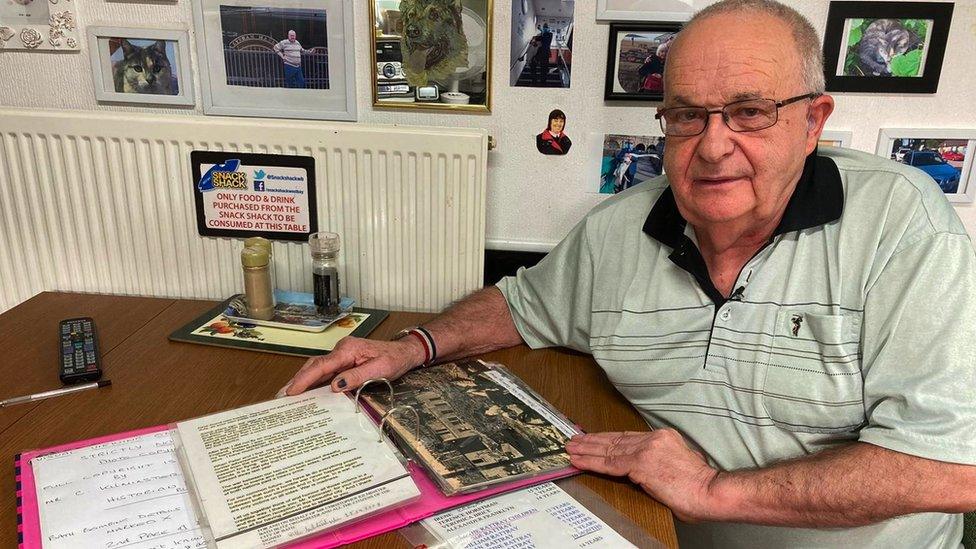
Bath City ambassador Chris Kilminster organised the memorial
Mr Kilminster has been an ambassador for Bath since 2019 and cares for the memorials on behalf of the city.
To mark the anniversary, he had an old war memorial redesigned to bring it "up to the 21st Century".
The mayor, councillor June Player, also went to the service and laid a floral tribute.
The Sassparella all-female singers performed war-time songs, dressed in 1940s attire.
Speaking prior to the service, Mr Kilminster said: "All the children who died during the Blitz will have their names and ages read out during the service, some 63 to date, which includes the Good Friday raid in 1941, Twerton High Street, and the Dolemeads at Widcombe."
The city of Bath was bombed over two days during the Baedeker raids in the Second World War between 25 and 27 April, 1942.
Targets were chosen for their cultural and historical value, as opposed to their strategic or military value.
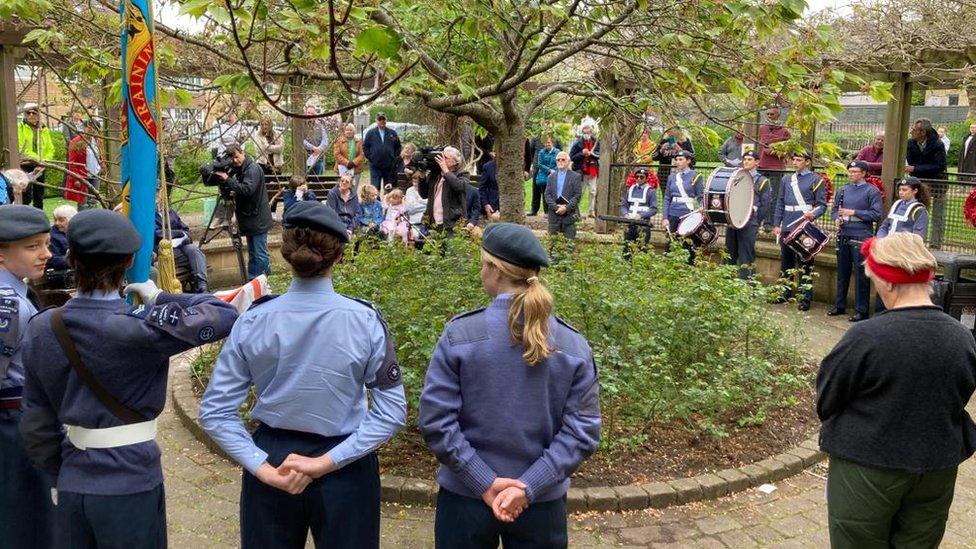
A remembrance service was held for those who died in the raids
Mr Kilminster's mother Lilian received shrapnel wounds to her right leg that had to be amputated above the knee in a US field hospital near Shepton Mallet.
His uncle Leonard, great-grandmother Mary Derrick, 79, seven-year-old sister Mary, and his mother's first husband Walter died in the raid.
Mr Kilminster said "people were blown out of their air raid shelters," including his four-year-old sister Shirley who was blown some distance across the rubble but was amazingly unscathed.
Because her mother was seriously hurt and her father had died, she was classified as an orphan and taken to Combe Down children's home near Bath.
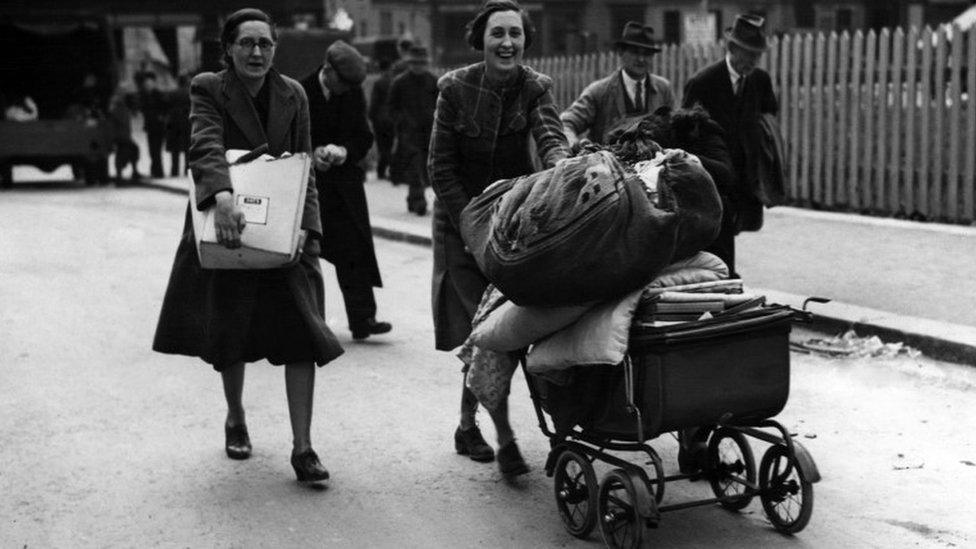
Many were evacuated from Bath because of Nazi bombing
Mr Kilminster has dedicated much of his life to the study of World War II and has a collection of material, including a signed apology, external from a German bomber pilot, Willi Schludecker.
"I don't talk fiction, I talk fact. I've studied it for so long now," he added.
"Everybody should remember what happened.
"We're remembering Bath, Bristol, Exeter... all the places that suffered so badly."

Follow BBC West on Facebook, external, Twitter, external and Instagram, external. Send your story ideas to: bristol@bbc.co.uk , external
Related topics
- Published28 June 2019
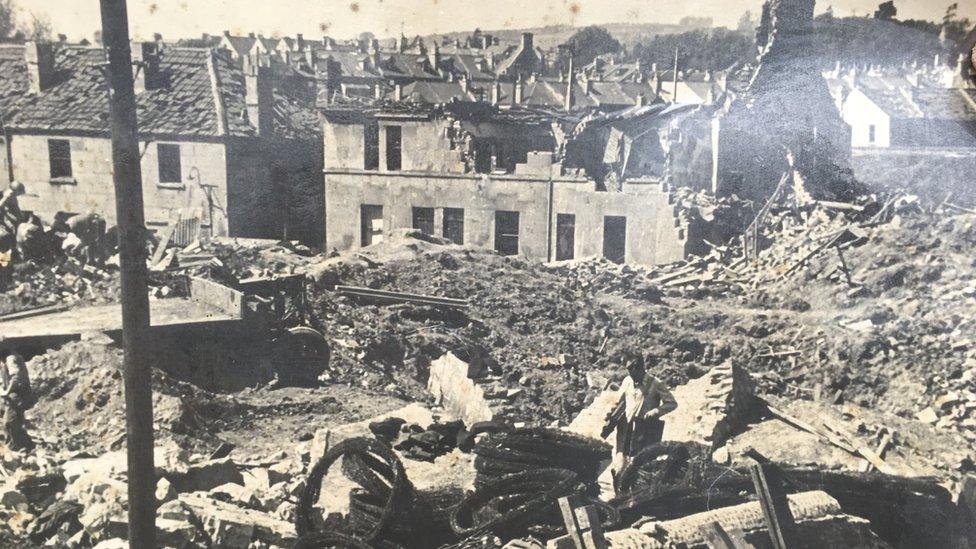
- Published28 April 2013
